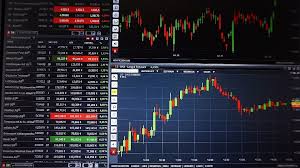

In the world of finance, trading in foreign currencies, or forex trading, has gained immense popularity. However, this allure comes with necessary precautions and regulations. A crucial aspect of entering the forex trading realm is obtaining a proper forex trading license. This article will delve into the importance of a forex trading license, detailing its benefits and explaining how to navigate the complexities of regulatory compliance. For more insights, check forex trading license trading-cambodia.com.
A forex trading license is an official permit that allows brokerages and financial service providers to operate in the foreign exchange market. This license is granted by regulatory bodies in various jurisdictions and is a testament to a company’s compliance with industry standards and regulations. It serves to protect traders against fraud and ensures that firms meet their financial obligations.
1. **Legitimacy and Trust**: One of the primary reasons to obtain a forex trading license is to establish legitimacy in the eyes of customers. A licensed broker is deemed reliable; therefore, traders feel more secure engaging with them. This trust is essential, especially in a field fraught with risks. License holders often undergo rigorous vetting processes, ensuring they adhere to the necessary guidelines.

2. **Regulatory Compliance**: Forex regulations vary by country and region, but in general, they encompass rules regarding trading practices, pricing transparency, and operational procedures. Brokers with a trading license must comply with these regulations, which helps maintain market integrity and protects investors. Regulatory compliance is also critical in avoiding legal issues that can arise from trading malpractice.
3. **Consumer Protection**: Licensed forex brokers are mandated to establish protective measures for their clients, which can include segregated accounts, negative balance protection, and compensation funds. These measures safeguard traders’ funds and instill confidence that their investments are being handled responsibly.
There are various types of forex trading licenses depending on the jurisdiction in which the broker operates. Here are a few prominent ones:

Obtaining a forex trading license can be a lengthy and complex process, but it is essential for establishing a reputable trading firm. Below are the steps typically involved:
In conclusion, securing a forex trading license is a fundamental step for anyone looking to establish a credible forex brokerage or trading service. It not only fosters trust with clients but also ensures compliance with regulatory standards, offering protection for both traders and the market at large. While the process of obtaining a license can be arduous, the benefits it brings to a trading firm are invaluable.
As the forex market continues to evolve, staying informed about the regulatory landscape and maintaining a valid trading license will be essential. It’s advisable for traders and brokers alike to consult with legal experts specializing in financial regulations to understand better the licensing process and its implications for their operations.